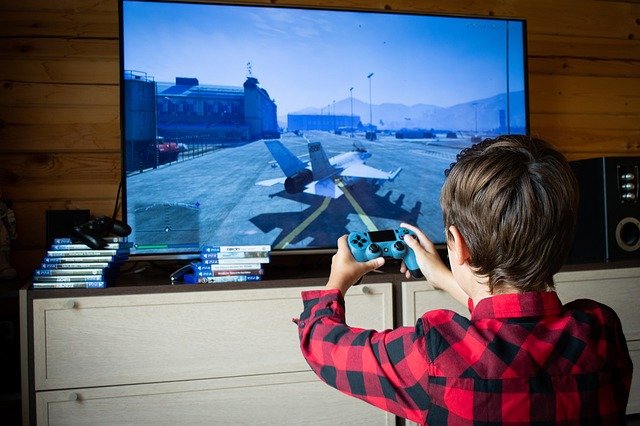In our rapidly evolving technological landscape, video games have become an integral part of children’s entertainment. Despite common concerns surrounding screen time, video games offer a multitude of developmental benefits that are often overlooked. This blog post aims to shed light on the myriad ways in which video games contribute to the cognitive, social, and emotional growth of children, dispelling misconceptions and emphasizing the positive aspects of this digital medium.

Cognitive Skills Enhancement
The impact of video games on cognitive development extends beyond mere entertainment. Engaging in these interactive experiences challenges a child’s mind, promoting critical thinking and problem-solving skills. Games often present complex scenarios that require strategic planning and decision-making, compelling players to think on their feet. This cognitive engagement not only stimulates the brain but also enhances a child’s ability to analyze situations, anticipate outcomes, and adapt to changing circumstances.
Moreover, the immersive nature of video games captivates a child’s attention for sustained periods. This heightened focus has direct implications for academic tasks, as children develop the ability to concentrate on specific objectives and disregard distractions—an invaluable skill in today’s information-rich environment.
Hand-Eye Coordination and Motor Skills
One of the tangible benefits of video games is their positive impact on hand-eye coordination and fine motor skills. The dynamic and fast-paced nature of many games requires precise control of a character or avatar, necessitating swift and accurate responses. Whether manipulating a game controller, keyboard, or touchscreen, children develop a level of dexterity that extends beyond the virtual world.
This enhanced coordination is transferable to real-world activities, such as writing, playing sports, or even everyday tasks like tying shoelaces. The hand-eye coordination fostered by video games lays a foundation for physical competence, supporting a child’s overall motor development.
Creativity and Imagination
Video games are not just consumable content; they can be powerful tools for nurturing creativity and imagination. Games with open-world settings or creative modes empower children to become architects of their digital worlds. Through building structures, crafting landscapes, and experimenting with design, children engage in a form of digital creativity that is both expressive and cognitively stimulating.
The act of creating within the constraints of a game’s mechanics encourages problem-solving and critical thinking. It allows children to envision possibilities, experiment with different ideas, and learn from the consequences of their choices. In this way, video games become a canvas for self-expression and a medium through which children can develop their imaginative capacities. While extolling the virtues of video games in child development, it is pertinent to address the safety Roblox concerns that many parents express regarding this medium. As with any form of entertainment, parents must be aware of the tools and settings available within these environments to ensure a safe and positive gaming experience for their children.
Social Interaction and Teamwork
Contrary to the stereotype of solitary gaming, many video games encourage social interaction and teamwork. Online multiplayer games, in particular, provide a platform for children to collaborate with peers, fostering communication and interpersonal skills. The shared experience of navigating virtual worlds together builds a sense of camaraderie and teamwork.
Furthermore, multiplayer games often involve coordinating strategies and executing plans collectively, promoting cooperation and mutual understanding. These social interactions within the gaming environment can have positive implications for real-world relationships, as children learn to navigate group dynamics and appreciate diverse perspectives.
Stress Relief and Emotional Regulation
In our fast-paced and often stressful world, video games provide a therapeutic escape for children. The immersive and engaging nature of gaming allows them to momentarily detach from the pressures of daily life, promoting relaxation and stress relief. This digital respite not only serves as a form of entertainment but also contributes to emotional well-being.
Certain games are designed to evoke a range of emotions, introducing children to nuanced narratives that explore themes of friendship, courage, and resilience. Interacting with these narratives helps children develop emotional intelligence, fostering an understanding of complex feelings and providing tools for emotional regulation. By navigating the emotional landscapes presented in games, children gain insights into their own emotions and those of others.
Cultural and Educational Exposure
Beyond their entertainment value, many video games incorporate educational elements that provide children with exposure to diverse topics. Historical settings, scientific concepts, and cultural references are seamlessly woven into the fabric of certain games, offering an engaging and interactive approach to learning.
Games set in historical periods, for instance, can spark an interest in history, prompting children to explore further beyond the virtual realm. Educational games often present information in a way that is more accessible and enjoyable than traditional learning materials. By seamlessly integrating education with entertainment, video games become valuable tools for broadening a child’s knowledge base and cultivating a curiosity for various subjects.

In conclusion, the benefits of video games for children’s development are multifaceted and extend far beyond the realm of entertainment. These digital experiences, when approached mindfully, contribute positively to cognitive skills, social interactions, emotional well-being, and educational exposure. As parents and educators navigate the digital landscape with their children, recognizing and harnessing the potential benefits of video games can pave the way for a balanced and holistic approach to child development in the digital age. By fostering a nuanced understanding of the positive impacts, we can leverage video games as powerful tools for enhancing children’s growth and well-being.
